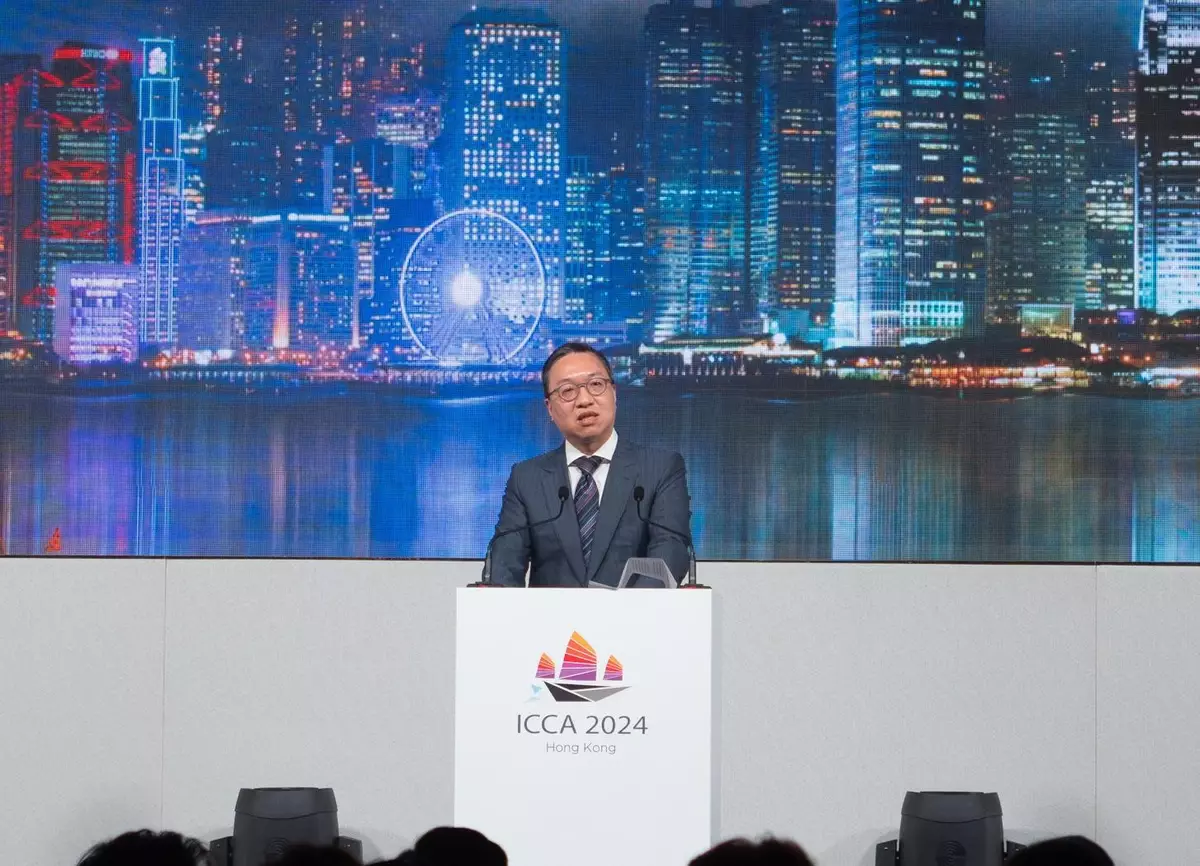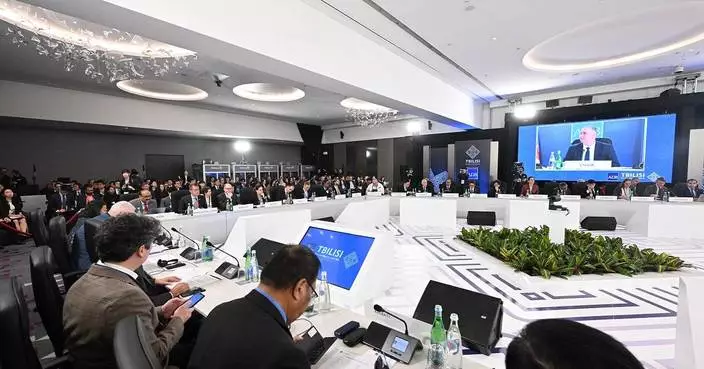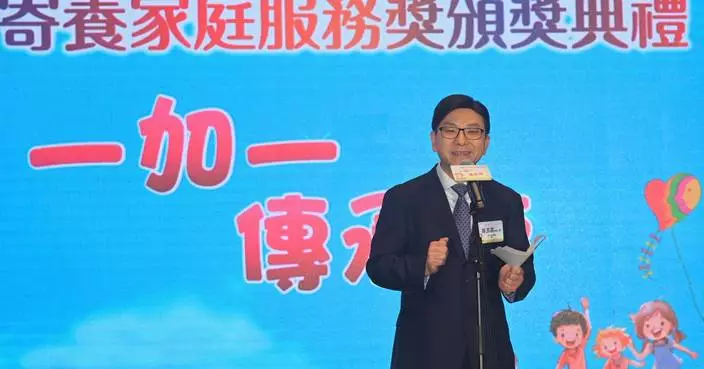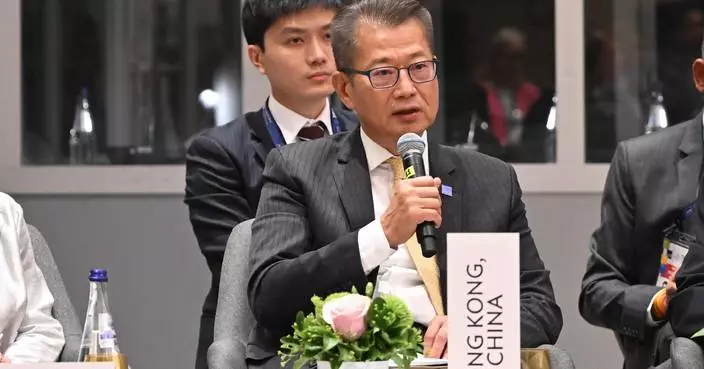Unlocking the potential: the future of sai yee street and flower market road
âFollowing is a question by the Hon Shiu Ka-fai and a written reply by the Secretary for Development, Ms Bernadette Linn, in the Legislative Council today (April 24):
Question:
The Urban Renewal Authority (URA) announced last month the commencement of the Sai Yee Street/Flower Market Road Development Scheme (the Scheme) which involved the redevelopment of the Mong Kok Flower Market (the Flower Market). Some members of the community are of the view that while the Flower Market is a century-old district in Hong Kong with characteristics, past experience shows that some streets or districts with characteristics tend to lose their original characteristics after relocation or redevelopment by the authorities, and therefore they are worried that the same would happen to the Flower Market. In this connection, will the Government inform this Council:
(1) whether it knows the numbers of affected operators of ground floor and upper floor shops (including floral arrangement schools) within the scope of the Scheme and the area of their shops, with a tabulated breakdown by business category;
(2) whether it knows, in taking forward the Scheme, the specific measures put in place by the URA to assist the operators of ground floor and upper floor shops mentioned in (1) respectively, including ways to ensure that the desire of affected flower shop operators to relocate back to the Flower Market after redevelopment will not be undermined by factors such as high rentals in future;
(3) whether it knows the age distribution of buildings to be redeveloped under the Scheme, and how such age distribution compares with that of buildings in other old districts; of the reasons for the URA choosing to first proceed with a redevelopment project on the Flower Market;
(4) whether it knows if the URA has measures in place to minimise the inconvenience or impact caused to the operators of nearby ground floor and upper floor shops outside the scope of the Scheme when the construction works of the Scheme are in progress; if the URA has, of the details; if not, the reasons for that; and
(5) whether specific long term measures or plans are in place to help flower shops and relevant operators in the Flower Market sustain their operation and ensure that local characteristics and vibes of the Flower Market will be preserved; if so, of the details; if not, the reasons for that?
Reply:
President,
Following the completion of the District Study for Yau Ma Tei and Mong Kok (YMDS) in 2021, the Sai Yee Street/Flower Market Road Development Scheme (the Scheme) is the first urban renewal project launched by the Urban Renewal Authority (URA) in the district according to the recommendations of the YMDS. The Scheme comprises six sites. Upon redevelopment, it will increase the supply of private residential and commercial floor space, as well as provide brand-new recreational, leisure and public facilities. The revitalisation of the Flower Market and the preservation of the local character of the district are also objectives of the Scheme. The URA hopes not only to preserve the existing characteristics of the Flower Market, but also enhance its characteristics and ambience, so as to inject diversified development and new vitality into the Flower Market, and provide more space for the flower shops to operate and create a better business environment. This will provide a more comfortable shopping environment for the people visiting the flower shops (please see part (5) of the reply for more details). According to the URA's survey, there are currently some 120 ground-floor flower shops in the Flower Market, more than 20 of them will be affected by the redevelopment project. The URA will provide transitional and moving-back arrangement for affected flower shops.
Having consulted the URA, my reply to the various parts of the question is as follows:
(1) Based on the information obtained from the freezing survey conducted by the URA on the announcement date of the Scheme, the information of the affected ground-floor shop operators and upper-floor business operators within the Scheme boundary, categorised by their business nature (Note 1), is tabulated as follows:
(total)
(35)
(12)

As always, the URA's case officers will continue to visit the affected households and business operators to explain the acquisition policies, as well as the implementation arrangements, timetable and the latest progress of the Scheme. If the Scheme is eventually approved by the Chief Executive in Council, the URA will, based on the occupying conditions of the affected properties as recorded in the freezing survey and in accordance with the prevailing policy, make acquisition offers to owners of domestic/non-domestic properties, make compensation offers to tenants of domestic/non-domestic properties and arrange rehousing for eligible tenants of domestic properties of the Scheme.
(2) A multi-purpose complex is proposed to be constructed under the Scheme. The ground floor of the complex will provide on-street retail units facing the proposed Waterway Park. According to the current planning, it is proposed that these retail units should have a florist or horticultural theme. The URA will also consider giving priority to the florist operators affected by the redevelopment to move back to these retail units after completion of the Scheme, while arrangements to facilitate their transitional operation will also be examined.
The management model and rental level of the retail portion of the multi-purpose complex will be determined based on the market environment and operational direction, and there is currently no finalised plan. The URA will maintain ongoing communication with the operators of the affected shops within the Scheme area to understand their needs so as to provide appropriate assistance.
(3) The Scheme involves a total of 23 private buildings aged between 64 and 76 years, which are older than the average building age of buildings involved in the redevelopment projects undertaken by the URA in the past two years (2022 to 2023) (the average building age is about 60 years (Note 3)).
As in the past, before deciding to proceed with the Scheme, the URA has already conducted a comprehensive examination and analysis a basket of factors, including land use, feasibility of planning, building age, financial capacity of the URA, and assessed the planning gains brought about by the Scheme under the "planning-led" and "district-based" strategy. In view of the fact that the area around Sai Yee Street and Flower Market Road has been developed for many years, the relevant planning support and facilities are no longer able to cope with the development needs of the area, including aged recreational facilities with segregated functionality and spaces, lack of leisure and resting spaces, as well as traffic congestion and competition between pedestrians and vehicles for road space in the vicinity of the Flower Market. The URA aims to leverage the Scheme to help resolve the district problems mentioned above as well as to improve hardware support and spatial planning, so as to facilitate the long-term sustainable development of the Flower Market and to encourage redevelopment of old districts nearby.
(4) The URA is aware that there may be impact on the environment of the Flower Market during the construction period. Under the current planning, the URA will carry out the construction works in phases, starting with the site without shops (i.e. the site at the Boundary Street). As for other five sites, the construction works are expected to be commenced at a later stage since acquisition and relocation matters will be involved. The URA will make use of this period of time to engage the operators of the shops concerned and formulate measures to mitigate the impact of the construction work.
During the construction period, the URA will also require the contractor(s) to conduct environmental monitoring, which mainly include dust, effluent and noise monitoring, so as to minimise the impact on the surrounding environment and the shops in the vicinity of the Scheme.
(5) The Scheme will promote the further development of the Flower Market on various fronts, including the provision of on-street retail units facing the proposed Waterway Park on the ground level of the proposed multi-purpose complex, so as to expand the area as well as to improve the supporting facilities and environment of the Flower Market. More opportunities will then be created for the flower shops and related operators to expand their businesses and enhance the vibrant marketplace atmosphere of the Flower Market.
At the same time, the URA will complement with the revitalisation project of the pre-war tenement clusters (i.e. the Prince Edward Road West/Yuen Ngai Street project) which has been completed years ago, and combine the four sites in the Prince Edward Road West under the Scheme to enhance the back lanes along Yuen Ngai Street and Yuen Po Street through landscaping and revitalisation works as well as place-making, with the aim to transform them into the Third Flower Market Pedestrian Walkway in addition to the Flower Market Road and the Prince Edward Road West. This proposal will help enhance the overall environment of the Flower Market, boosting street vibrancy and extend the distinctive ambience and characteristics of the Flower Market to the vicinity.
The URA also proposes to construct a Waterway Park with an area of not less than 8 800 square metres in the Scheme. By incorporating landscape design elements such as planting flowers, trees, and shrubs, as well as encouraging place-making, the Waterway Park will capitalise on its unique geographical location adjacent to the Flower Market and create a "flower viewing hotspot". This will highlight the district characteristics of the Flower Market and revitalise the image of the area.
In addition, the Scheme also proposes to construct an underground public carpark at the site located at the Boundary Street to provide additionally about 220 public parking spaces for private cars and 10 public loading/unloading bays for some of the flower operators in order to facilitate their cargo handling, and for the convenience of those who drive to Flower Market to buy flowers. This proposal will help alleviate the problems of illegal parking, road congestion and pedestrian-vehicle conflicts caused by insufficient metered parking spaces in the Flower Market area. By improving the overall traffic and pedestrian environment in the vicinity, it will enhance the business environment and improve the shopping experience of customers in the Flower Market, which will in turn help attract more customers to the flower shops and related businesses, and promote the area as a diversified shopping district for leisure and recreation.
Note 1: Since the acquisition and clearance works have not been commenced, the URA is not able to provide information regarding the business operating area of the units at this stage.
Note 2: Apart from the ground-floor premises, the church also occupies several units on the upper floors.
Note 3: Exclude five pre-war buildings.

Source: AI-generated images








